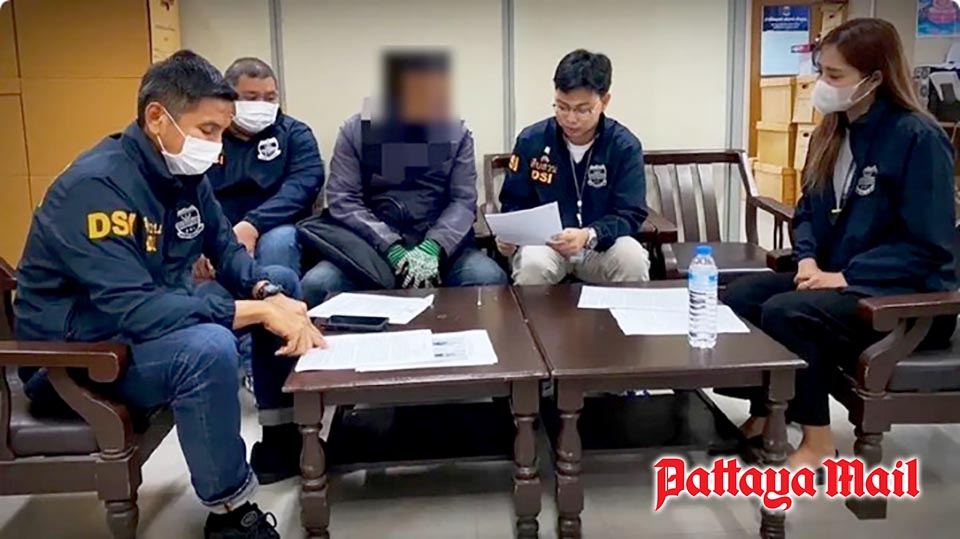Thailand has a long way to go as some still use the homeland as a scam hub
Turning Home into a Scam Hub: Thai man caught in billion-baht fraud as authorities uncover 28 fake companies used in transnational jet parking scam.
PATTAYA, Thailand – Thailand is showing signs of becoming a safer country, with law enforcement intensifying crackdowns on international scam networks that exploit local systems. However, the journey toward restoring trust and securing the nation’s digital and economic environment remains long and arduous — especially when some Thai nationals continue to weaponize their own country as a platform for large-scale fraud.
A recent case uncovered by the Department of Special Investigation (DSI) starkly illustrates the depth of the problem. In what is now known as Case No. 118/2566, the DSI successfully arrested a Thai man linked to a billion-baht international scam operation that used fake companies and fraudulent websites to deceive victims across borders.
The investigation revealed a transnational criminal network that had registered over 28 fake companies in Thailand. These entities were used to create a veneer of legitimacy to trick victims — particularly foreigners — into transferring funds. One of the more audacious scams involved fake emails and documents claiming to offer private jet parking spaces at Don Mueang Airport, leading victims to transfer millions of baht to the accounts of these bogus firms.
The DSI’s Center for Surveillance and Intelligence tracked the suspect and apprehended him outside their headquarters on Chaeng Wattana Road in Bangkok. The suspect is facing a staggering list of charges, including:
-Participation in a transnational criminal organization
-Computer-related fraud that jeopardizes public security and the national economy
-Impersonation to deceive and defraud
-Money laundering
-Conspiracy to commit money laundering
The suspect was read his rights in accordance with Thai criminal procedure and was informed that the entire arrest would be recorded under the Prevention and Suppression of Torture and Enforced Disappearance Act of 2022. He acknowledged the charges and was handed over to the appropriate investigators for prosecution.
The scope of the damage is enormous. Authorities found that the gang was behind more than 2,000 fake websites, advertising non-existent goods and services, with an estimated total loss of over 2 billion baht. The arrested individual, the 10th suspect captured out of a total of 24, played a critical role:
Sourcing personal documents of others to fraudulently register companies.
Personally registering 28 fake firms on behalf of the scam operation.
Enabling the gang to carry out large-scale fraud.
Assisting in email phishing campaigns to deceive victims into paying bogus jet parking fees.
Facilitating transfers of at least 3 million baht from Thai victims and 4.5 million baht from foreign victims — with the latter yet to file official complaints.
These revelations underscore a critical point: while Thai authorities are increasingly proactive and transparent in exposing and dismantling fraud networks, there is still a long road ahead. The fact that such scams were made possible through local institutions, using Thai citizens to front company registrations, is a reminder of the vulnerabilities that exist within Thailand’s business and regulatory ecosystems.
Efforts by agencies like the DSI offer hope, especially as they move to expose and prosecute both the digital and human infrastructure behind these crimes. However, systemic change will require tighter oversight of company registrations, improved digital literacy among the public, and greater international cooperation to tackle financial crimes that respect no borders.
For now, Thailand feels marginally safer — but until the nation no longer serves as a convenient base for global scam networks, that safety remains fragile.



